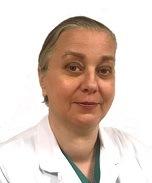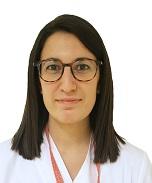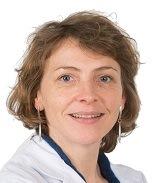Stomach cancer

Summary/Epidemiology
Stomach cancer is less common now than it was in the past. This may be explained by the reduction in frequency of chronic stomach ulcers, which are the principal risk factor.
The most common type of stomach cancer is adenocarcinoma, representing 90% of cases. It can develop in any part of the stomach. There are other, rarer cancers that are treated differently (GIST, neuroendocrine tumour (NET), lymphoma).
Risk factors
The principal risk factors are the presence of Helicobacter pylori in the stomach, smoking, a diet rich in salt and low in fruits and vegetables, a family history of stomach cancer, or more rarely a genetic disposition. There are now effective treatments for eliminating Helicobacter pylori bacteria (the most common cause of stomach ulcers). Removing this pathogen from the stomach prevents ulcers becoming chronic and developing into cancer. However, the presence of this bacteria is very common and its presence in the stomach does not necessarily mean that someone will develop stomach cancer..
Symptoms
There are no typical symptoms of stomach cancer, and it often goes unnoticed in the early stages. Other, relatively unspecific signs can sometimes suggest the presence of cancer, for example anaemia, unexplained weight loss and prolonged loss of appetite.
Diagnosis
Microscopic examination of fragments taken during endoscopy is used for definitive diagnosis.
Examinations
A cancer workup must be carried out after diagnosis. This includes various examinations including in particular a CT scan, an endoscopic ultrasound, a PET scan, etc.
Treatments
The choice of treatments is adapted to each situation. This is discussed during a Multidisciplinary Team Meeting.
If the tumour is superficial, curative endoscopic excision is a treatment option that reduces potential complications and the duration of hospitalisation. This treatment, called a mucosectomy, is carried out in expert centres for therapeutic endoscopy like ours, as it requires a meticulous technique.
For localised cancers, the reference treatment is surgery. This consists of removing all or part of the stomach (total or partial gastrectomy). Reconstructive surgery is carried out at the same time to re-establish the continuity of the digestive tract using the small intestine. Nutritional management is recommended before surgical treatment.
For locally advanced cancer, chemotherapy before and after the surgery is the reference treatment. Different chemotherapy protocols combining one or more drugs can be proposed to slow or even stop the progression of the cancer.
Chemotherapy alone can contribute to slowing the development of the disease, relieving symptoms (particularly with regard to pain) and improving quality of life. This is the reference treatment for metastatic cancers.
Treating patients requires close collaboration between medical oncologists, radiotherapists, surgeons, anatomical pathologists, radiologists, nuclear medicine specialists and gastroenterologists. This multidisciplinary team meets each week with the objective of proposing the best possible care for each patient. They are assisted by specialist oncology nurses (care coordinator), psychologists, dieticians, physiotherapists, etc. to ensure a holistic, optimised approach to patient care.
Research / Innovation
Studies investigating stomach cancer mainly focus on:
- Evaluating different ways of using existing treatments or their combination (endoscopy, surgery, chemotherapy, radiotherapy) in order to improve their efficacy or reduce their side effects (associated with drug combinations, for example),
- Testing innovative treatments,
- Identifying new treatments.
Contact
For any further information, or if you would like to make an appointment, please contact the Oncology Care Coordinator at + 32 2 764 42 12.
Doctor

Dr Hélène DANO

Pr Etienne DANSE

Dr Astrid DE CUYPER

Pr Pierre H. DEPREZ

Dr Yannick DESWYSEN

Dr Cristina Anca DRAGEAN

Pr Hubert PIESSEVAUX

Dr Maximilien THOMA

Pr Marc VAN DEN EYNDE

Pr Geneviève VAN OOTEGHEM
Paramedical

Anouck DEL SOLO RINONES

Florie EVERARD

Funda KUTLU

Tuan LE TRONG

